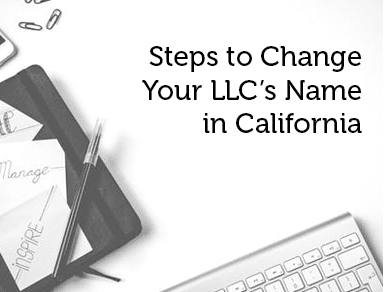More About Limited Liability Companies
Many property owners need to know how to protect real estate assets in California from lawsuits. California’s legal environment is known for being particularly plaintiff-friendly, making it easier for individuals to file lawsuits and potentially win significant settlements. This risk is amplified by the high value of real estate in many parts of the state.
Protecting real estate assets can also provide you with peace of mind and financial stability. By employing legal strategies such as forming trusts, limited liability companies (LLCs), or purchasing umbrella insurance policies, you can create a layer of separation between your real estate assets and business liabilities.
Those who use their properties for business purposes, such as rental income, making the protection of real estate assets a prudent and necessary step in financial planning and risk management. This article will guide you through strategies to keep your property safe from legal troubles.
Key Takeaways
- Forming a limited liability company (LLC) is a smart choice for rental property owners in California, as it limits personal liability and protects personal assets from lawsuits.
- Land trusts offer privacy and protection for real estate owners by keeping their names off public records, which can prevent potential lawsuits.
- Domestic Asset Protection Trusts (DAPTs) provide strong protection for business owners by creating a separate legal entity to hold assets, thus safeguarding them from creditors and legal issues.
- Understanding California’s homestead exemptions helps homeowners protect their equity from creditors, with exemptions ranging up to $600,000 based on county median home prices.
- Consulting an attorney is crucial when dealing with complex situations or needing guidance on compliance with current laws to ensure the effectiveness of your real estate asset protection strategy.
Understanding Real Estate Asset Protection for Rental Properties
Asset protection for rental properties involves safeguarding your real estate investments from potential legal threats. Various strategies, such as forming a Limited Liability Company (LLC) and utilizing land trusts, can shield your assets and provide legal protection in the event of lawsuits or creditor claims.
Understanding these asset protection tools is crucial for real estate investors to secure their financial interests and mitigate risks associated with property ownership.
Protecting Real Estate Assets: Definition and Importance
To know how to protect real estate assets in California is as important as understanding what real estate asset protection is. Asset protection is the process of organizing your finances so that you change who legally owns your assets or where those assets are located. This practice prevents creditors and lawsuit plaintiffs from reaching your real estate investments or other valuable assets.
For business owners, especially those with rental properties in California, this method plays a crucial role. It guards both business and personal treasures against claims from others, keeping what you’ve worked for safe.
This strategy must take place before there’s any threat to your possessions to avoid legal issues like fraudulent conveyance charges. If done correctly, asset protection can act as a shield for your real estate against aggressive legal actions without breaking any laws.
Looking ahead, understanding common risks and threats in California becomes the next step after grasping these basic principles.
How to Protect Real Estate Assets from Common Risks and Threats in California
Natural disasters like earthquakes, wildfires, and floods pose significant risks in California. These events can damage rental properties, leading to costly repairs and potential disputes with tenants over living conditions.
Ensuring your real estate is protected from these physical threats requires thorough planning and insurance coverage tailored for such eventualities.
Protecting your assets goes beyond just the legal landscape; it’s about safeguarding your investment from the unpredictable nature of our environment.
Lawsuits stemming from tenant injuries or disagreements are another common threat to property owners in this state. With a high volume of litigation related to rental properties, asset protection strategies become crucial.
Limited liability companies (LLCs) and domestic asset protection trusts (DAPTs) offer layers of security against these legal challenges, shielding personal assets from the outcomes of aggressive lawsuit plaintiffs and unforeseen litigations.
Key Strategies to Protecting Your Assets
When protecting your rental property, consider forming a limited liability company (LLC), utilizing Land Trusts, and implementing Domestic Asset Protection Trusts (DAPTs). These strategies can shield your assets from potential legal threats or liabilities.
Seeking advice from an expert in asset protection law could help you determine the best approach for safeguarding your real estate investments.
How to Protect Real Estate Assets in California Through a Limited Liability Company (LLC)
Forming a limited liability company (LLC) is a smart move for business owners looking to protect their rental properties in California. This structure shields owners from personal liability, meaning if your rental faces a legal challenge, your personal assets stay safe.
Creditors can only reach the investments inside the LLC, not beyond it. For real estate investors and landlords, this offers peace of mind.
Choosing states like Wyoming or Nevada to establish an LLC could bring extra benefits due to their strong asset protection laws. However, these advantages mainly help if your property lies within those states.
Keep this detail in mind while planning your asset protection strategy for real estate investments.
Utilizing Land Trusts
Land trusts are an effective way to protect real estate assets and maintain privacy for property owners in California. By transferring ownership of the property to a land trust, the homeowner’s name is kept out of public records, providing an additional layer of confidentiality.
This strategy helps protect your personal assets from creditors and potential lawsuits related to your rental properties. “Investing in land trusts safeguards your real estate assets while ensuring privacy,” said asset protection expert John Smith.
Implementing Domestic Asset Protection Trusts (DAPTs)
The implementation of Domestic Asset Protection Trusts (DAPTs) can provide significant security for business owners seeking to safeguard their assets from potential legal threats. DAPTs are a powerful tool designed to enhance asset protection, shielding your property from creditors and other legal risks in California.
By setting up a DAPT, you establish a separate entity to hold ownership of your assets. This pivotal step not only safeguards your wealth but also ensures that you retain control over your assets throughout the process.
The tailored framework of DAPTs underpins their effectiveness in protecting the owner’s interests while navigating through the ever-evolving realm of asset protection.
DAPTs aren’t merely protective measures; they’re strategic moves aimed at fortifying your position amidst potential lawsuits or financial uncertainties. Through meticulous planning and legally compliant steps, setting up a DAPT unlocks an additional layer of protection for personal and business assets alike without compromising on control or operational authority.
Legal Tools and Provisions to Protect Assets
When it comes to protecting real estate assets from potential lawsuits in California, understanding the legal tools and provisions available is essential. Homestead exemptions in California and specific insurance policies for real estate are legal safeguards that can help protect your assets.
It’s advisable to an attorney to navigate the ever-evolving complexities of asset protection laws and ensure that your strategies are tailored towards effective risk management.
Homestead Exceptions in California
Homestead protection is a vital concept in California law, offering homeowners a safeguard against the forced sale of their property under certain conditions. To clarify, homestead protection should not be confused with the historical Homesteading program that allocated federal lands to families between 1862 and 1986, nor with the homeowner’s property tax exemption that provides a $7,000 reduction in property value for tax purposes for those who occupy their principal residence.
Homestead protection is enshrined in the California Constitution, which states: “The Legislature shall protect, by law, from forced sale a certain portion of the homestead and other property of all heads of families.” There are three primary forms of homestead protection in California: the declaration of homestead, the probate homestead, and the residential exemption. While the first two require action by the property owner or a judge, the residential exemption is granted automatically by statute in most cases.
Residential Exemption
The residential exemption shields a homeowner’s property from being forcibly sold by a creditor enforcing a judgment if the sale would not cover existing liens on the property and still leave the homeowner with the homestead exemption amount. For example, suppose the homestead exemption is set at $300,000, the home has a $475,000 mortgage, and there is a creditor’s judgment of $35,000, totaling $810,000 in obligations. If the home’s market value is $800,000, the residential exemption would prevent a forced sale since the sale proceeds would fall short of the combined mortgage, homestead exemption, and judgment amounts.
Declared Homestead
A homeowner can record a Declared Homestead with the Recorder in the county where the property is located. The main distinction between the statutory residential exemption and the declared homestead is that the statutory exemption applies only to involuntary sales (such as those forced by creditors), whereas the declared homestead also applies to voluntary sales.
This means that if a homeowner voluntarily sells their home, the declared homestead protects their equity up to the homestead limit. It’s important to note that the statutory and declared exemptions are mutually exclusive, so property owners should carefully consider whether to declare a homestead on their property or rely on the statutory residential exemption.
Probate Homestead
A judge can establish a probate homestead for a surviving spouse or minor children, providing similar protections to those offered by a declaration of homestead. This judicial action ensures that the surviving family members have a place to live, protected from creditors, following the death of the homeowner.
Understanding these protections can help homeowners make informed decisions about safeguarding their property. For specific advice and assistance, consulting with a qualified attorney is always recommended.
Insurance Policies Specific to Real Estate
Real estate investors should prioritize insurance policies tailored to their specific needs. Landlord insurance offers protection against liability, property damage, and loss of rental income. This type of coverage is essential for safeguarding real estate investments in California from potential risks and lawsuits. Additionally, forming a Limited Liability Company (LLC) can provide an extra layer of protection by separating personal assets from business liabilities.
When it comes to protecting real estate assets, consultation with legal professionals familiar with asset protection strategies for rental properties is advisable. It’s crucial for business owners to stay informed about the ever-evolving realm of asset protection tools and provisions to ensure the best level of legal protection possible.
Protecting Real Estate Assets: When to Consult a Lawyer
Consult an attorney when facing complex situations and requiring legal compliance and updates. Identify the need for tailored strategies to protect business and personal assets, especially in the ever-evolving realm of real estate investing.
How to Protect Real Estate Assets in California? Identify Complex Situations
Identifying complex situations can be challenging, especially when it involves legal matters. Understanding the intricacies of asset protection strategies and navigating potential risks is crucial for business owners.
Delving into the realm of real estate asset protection in California may reveal ever-evolving complexities that demand meticulous attention to detail. It’s not merely about protecting assets from creditors; business owners must consider an array of factors, such as incisive legal tools like domestic asset protection trusts (DAPTs) and land trusts, tailored towards safeguarding assets and minimizing risks in a litigious landscape.
Moreover, seeking more than just conventional approaches can unlock the secrets behind effective asset protection while enhancing wealth preservation strategies in California. Identifying intricate scenarios not only underpins astute decision-making but also supports informed steps to protect business and personal assets within this dynamic environment.
Ensuring Legal Compliance and Updates for Real Estate Asset Protection
After setting up your real estate asset protection structures, staying abreast of legal compliance and updates is crucial. Regularly reviewing the current laws and regulations in California ensures that your strategies remain effective and compliant.
Utilizing the services of an asset protection lawyer can provide valuable guidance on any changes affecting real estate assets.
Notably, ongoing legal compliance helps safeguard against potential loopholes or oversights that could compromise the integrity of your protective measures. Keeping an eye on new legislation, case law developments, and updated provisions guarantees that your asset protection plan remains robust and aligned with regulatory requirements.
How to Protect Your Real Estate Assets and Other Frequently Asked Questions
1. What is an asset protection strategy in California?
An asset protection strategy in California helps you keep your assets safe from lawsuits, creditors, and divorce. It involves legal ways to protect your belongings like setting up trusts.
2. How to protect real estate assets in California from lawsuits?
To shield your real estate investments, consider creating a real estate asset protection plan. This might include forming an irrevocable trust or moving assets into an offshore asset protection trust.
3. What is an offshore asset protection trust?
An offshore asset protection trust is a type of legal arrangement set up outside the United States to safeguard your assets from domestic legal claims, making it harder for creditors to reach them.
4. Can setting up a trust protect my rental property in California?
Yes, setting up a certain kind of trust can help guard your rental property against claims from lawsuits or creditors because the property technically belongs to the trust, not you personally.
5. Why should I contact an attorney?
Contacting an attorney specializing in shielding wealth can guide you through creating effective strategies tailored to your situation, ensuring that you’re using current laws to their fullest potential for protecting what’s yours.
6. Are there specific protections against losing assets in a divorce or lawsuit?
Specific steps such as transferring ownership into trusts and establishing both domestic and international protective entities can significantly reduce risks of loss due to divorce proceedings or lawsuit judgments by legally distancing yourself from direct ownership.
7. Can real estate assets be protected in a corporation?
Real estate assets can be protected within a corporation by transferring the property ownership to a corporate entity. This creates a separation between personal and corporate liabilities, shielding personal assets from potential legal claims against the corporation. However, this strategy requires careful management to avoid issues like “piercing the corporate veil,” where courts might hold owners personally liable if corporate formalities are not properly maintained.
Learn How to Protect Real Estate Assets in California and Secure Your Investment Strategically
It’s always a good time to think about how to protect real estate assets in California, no matter how big or small your rental property is. Protecting your rental property from lawsuits in California requires careful consideration and proactive measures. Forming a limited liability company (LLC) and utilizing land trusts are basic strategies to safeguard assets, while understanding legal tools like homestead exemptions is crucial.
Implementing asset protection strategies before potential risks arise can help shield your real estate investments from creditors and legal judgments. Consultation with a lawyer when navigating complexities is essential to ensure that tailored solutions are put in place for the ever-changing realm of real estate investment.
Working with a legal team, such as Incorporation Attorney, will give you confidence that your rental property is safe from lawsuits. Our seasoned attorneys are well-versed in California real property laws and are ready to serve you with expertise. If you want to have that extra layer of protection, call us today!













